Slough: What is it like to live in 'immigration town'?
- Published
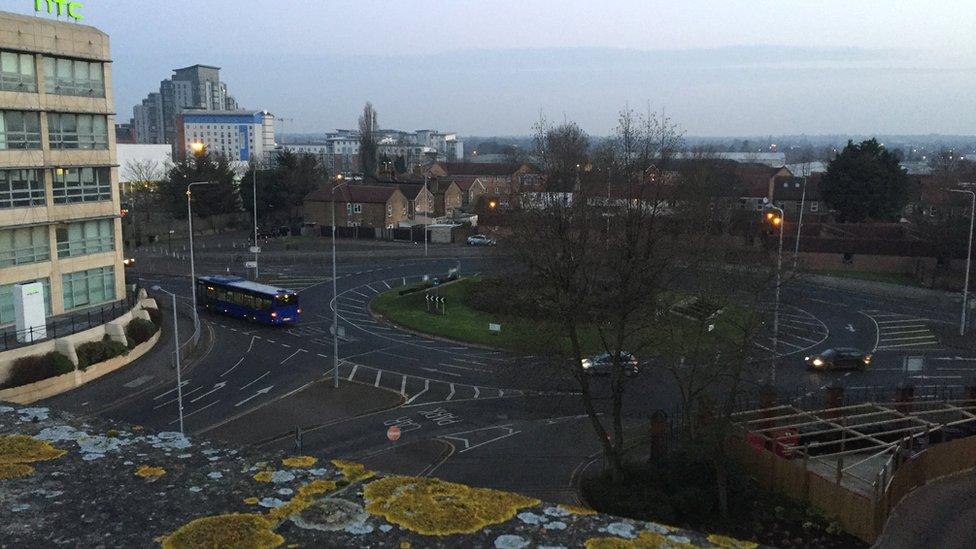
Walk down Slough's High Street, and you can see how the town has made its money: this place is built on immigration.
Since the 1920s, people have come here from across the UK and around the world to look for work.
The town's enormous trading estate welcomed them all.
And everyone has benefited.
Today, Slough has one of the most successful economies in the country.
Unemployment is just 1.4%, and the average wage is £558 per week.
But Slough is not quite the model of integration it seems.
Ten years ago, I came to the town to make a BBC Panorama programme about immigration.
Back in 2007, Slough had seen thousands of new arrivals from Central and Eastern Europe.
Many of the older residents didn't like it.
"If you go to the shop, you can't buy Kingsmill," one woman told me. "It's all Polish bread."
"They're very angry around here," another said.
"Not being disrespectful to the Polish, but they're moving in and they give them houses."
The Poles weren't getting all the houses and you could buy English bread, but you could feel a resentment that immigration had gone too far.
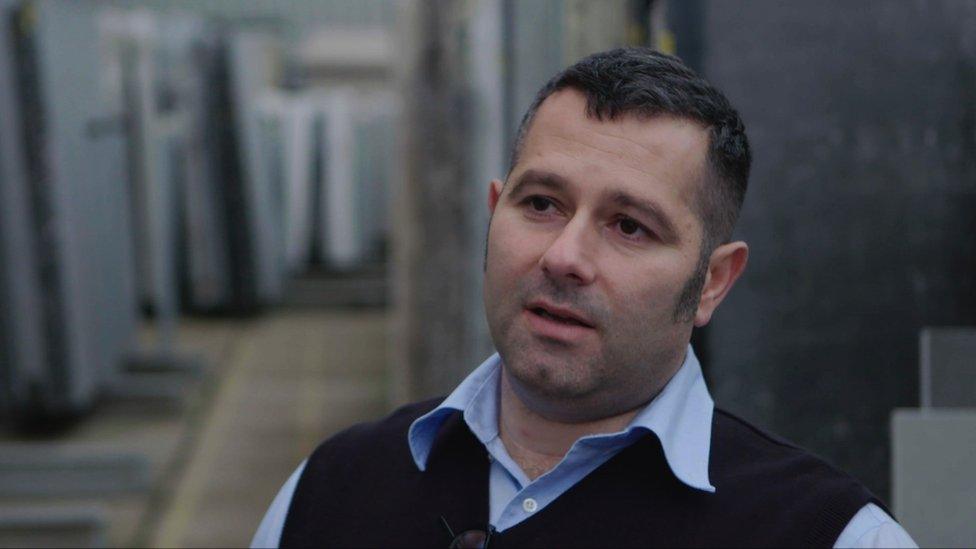
Business owner Salvatore Caruso is concerned about the effect of a smaller migrant workforce
Ten years on, immigration is now a national debate.
So, where does that leave the town that made its fortune with the help of migrant workers?
In a noisy workshop on the outskirts of the town, Salvatore Caruso and his workers cut and polish marble.
Mr Caruso, son of an Italian migrant, was using Polish workers when I came here 10 years ago, and he still is now.
He tells me his workforce has tripled in size in the past decade.
"If you take the migrant workers out of it, who's going to do the work?" he asks.
Slough's economy relies on migrant workers.
So many new arrivals might make a town successful, but they also change it. For some here, the change was too much.
Slough voted for Brexit. The town that made its fortune with migrant labour wanted out of Europe.
Sylwia Leszczynska is Polish and came to Slough 11 years ago to work as a carer for elderly people.
She planned her future in the UK.
She bought a house with her husband, Konrad.
Their children go to British schools.
But she doesn't believe in the dream anymore.
''Immigration, it's not so good an idea, like we thought before," she says.
"I now think more about going back to Poland.
"I've got a feeling they don't want us here.'
Her husband nods, and adds quietly: "Mr Farage opened Pandora's box.
"And now it's just worse really, worse than it was before."
Slough is an extraordinary mix.
It's the most ethnically diverse area outside London.
There are 150 different languages spoken there.
The last census found that two in every five of the town's residents had migrated to the UK.
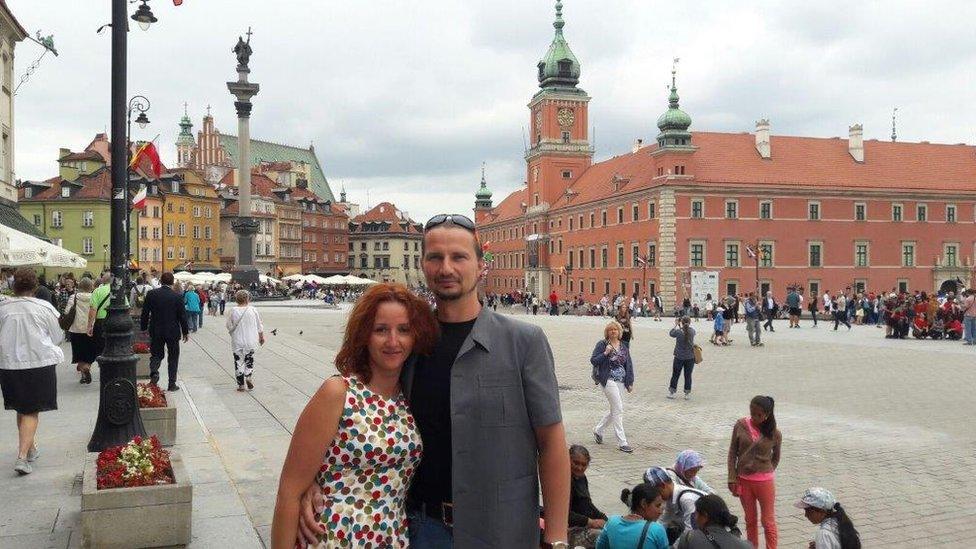
Sylwia Leszczynska and her husband Konrad are considering returning to Poland
But something else is happening here.
White British people are abandoning Slough.
Bernie and Ann Downes are moving out.
Mr Downes is deep in his garage, digging out the things he wants to take to their new home in Norfolk.
He and his wife have lived in Slough for most of their lives.
But they say it has changed too much.
"I feel quite sad," says Mrs Downes.
"I just loved Slough and everything about it.
"But now I can't find anything I like about Slough."
In 2001, there were 69,441 white British people living in Slough.
By 2011, that figure had dropped to 48,620.
White British people are now a minority.
Mr Downes says he is not a racist, but immigration is an issue.
"I don't feel any antipathy against the people," he adds.
"What I am against is the uncontrolled immigration."
There are plenty of people in Slough who are unhappy about immigration.
"Strain on the resources" is the most common complaint you hear.
But despite the pressure, research suggests most communities still get along.
Rob Deeks runs a charity that works with children.
"When we ask them if they've experienced racism, they have, but not in Slough," he says.
"They say, 'In the town up the road,' or, 'On the train.'
"This place is diverse, but it gets on."
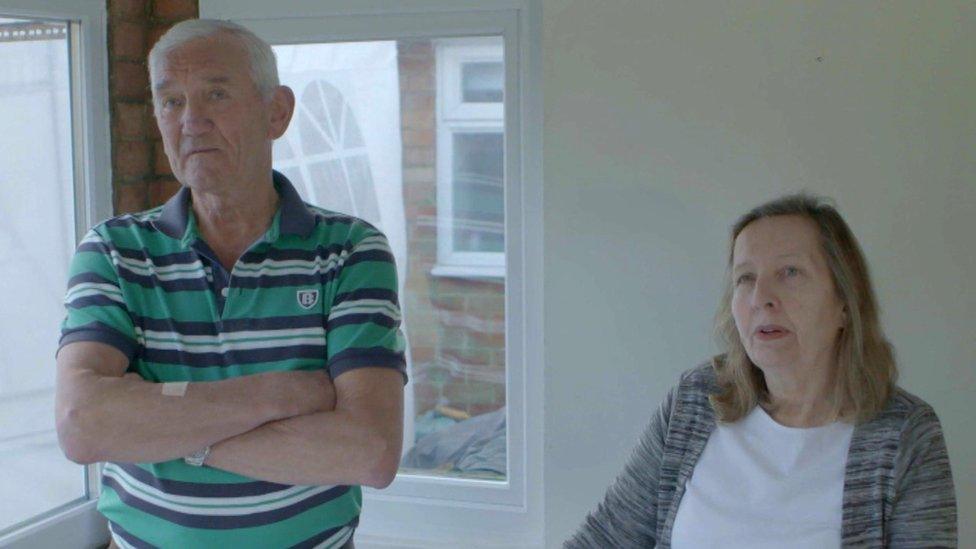
Having lived in Slough for most of their lives, Bernie and Ann Downes are moving out
Slough is about change, and it never stops.
The reason migrants came here in the 1920s is the reason they come here now - jobs.
On an icy Slough morning, a father and son brave the chill to walk to work.
They are from Seville in southern Spain, but Arturo Benjumeda and Arturo Jr are both now working at a printing company.
Arturo Sr moved to Slough after the Brexit vote.
The 60-year-old says he needed to work.
In Seville - a city where almost a third of the population is unemployed - he faced losing his home.
"I arrived here at night time, and I was already working in the morning," he says.
"Everything was new for me, so I felt quite stressed and very nervous."
His wife, Maria, has also found work, in a pub.
She says the Brexit vote didn't put them off.
"Our situation was so desperate, we had nothing to lose by coming here," she says.
Slough's story is driven by economics: the town that built its success on immigration, where some have had enough of the change it brings.
Richard Bilton's report, Life in Immigration Town, is on Panorama on BBC One at 20:30 on Monday 27 February and will be available to watch later via BBC iPlayer.
- Published17 February 2017
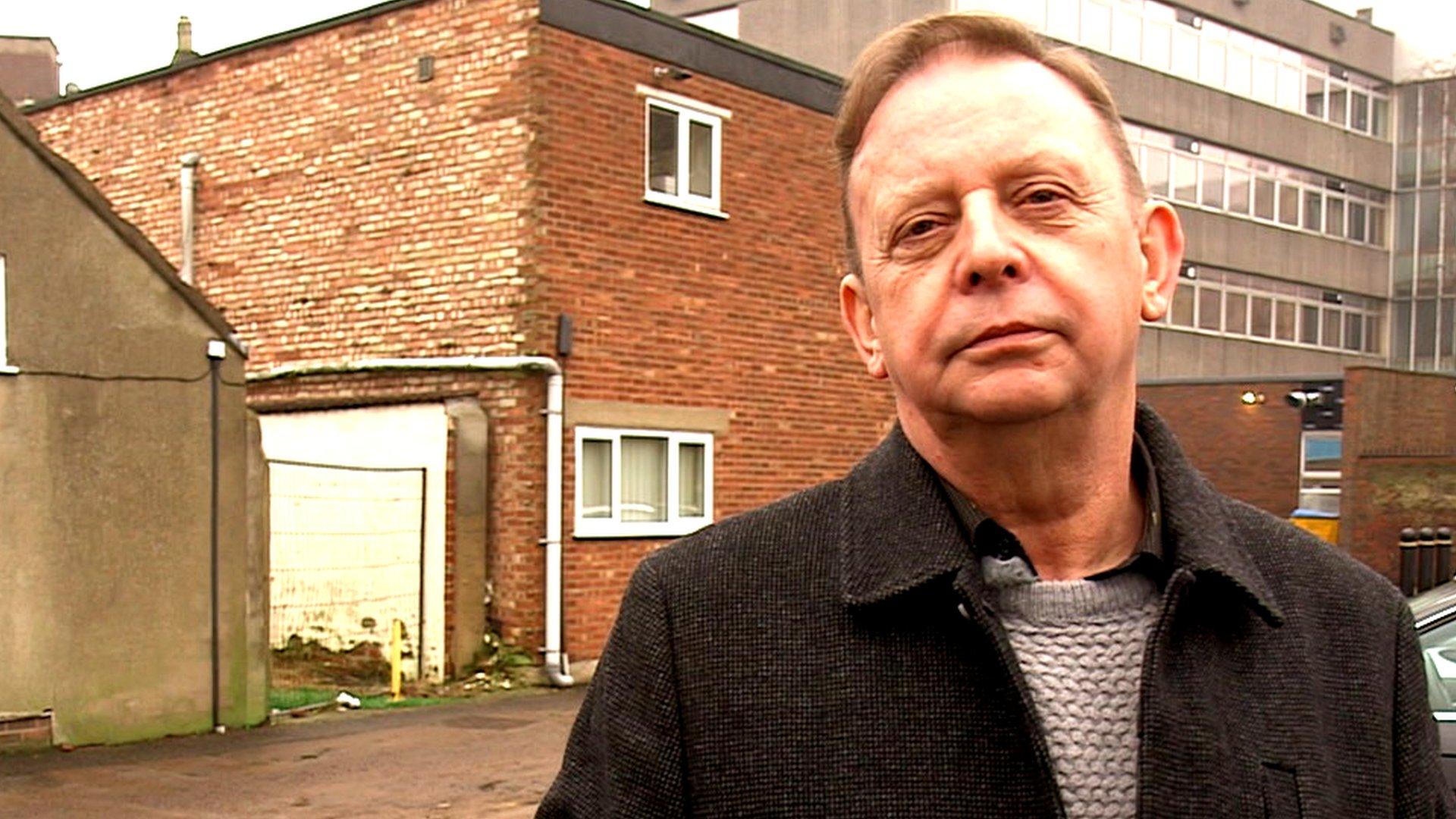
- Published14 December 2016